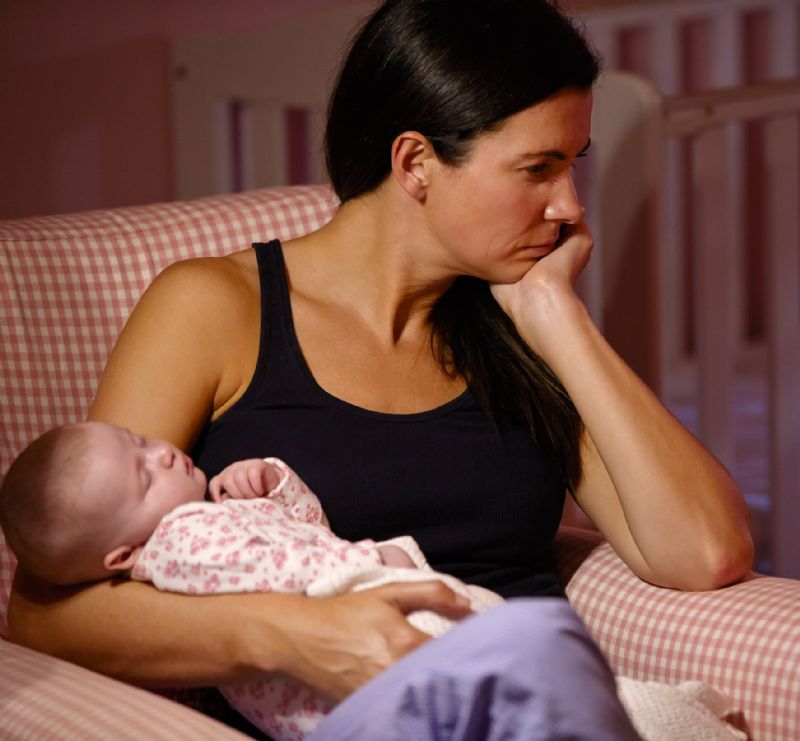- Home
- News, Articles & Reviews
We are hiring! Please click here to join our growing magazine delivery team in Gloucestershire!

Postnatal depression
All Areas > Health & Beauty > Medical Health
Author: Kirsty Lilley, Posted: Friday, 26th July 2024, 09:00
Having a baby is a huge event and transitional time in life. Whilst it can be a time of immense joy, it can also be stressful for various reasons.
It is common to experience a brief period of feeling low and tearful just after giving birth, which usually resolves within a two-week period. If symptoms last longer or start later, it may be postnatal depression, which can range from mild to severe and can come on gradually or quite suddenly.
It can be difficult to share how you are feeling with family and friends, especially when there is so much expectation surrounding the birth of a child. Remember, it can happen to anyone and early intervention is the most helpful way to begin the journey of recovery. Talk to someone you feel comfortable with or make an appointment with your GP or health visitor.
What causes postnatal depression?
Each person is different and will have a unique set of circumstances which may lead to an experience of postnatal depression. The most common factors include hormonal changes during pregnancy, previous mental health difficulties, stressful life conditions including financial challenges and a lack of social support, and early life trauma.
You may feel detached from your baby and unable to connect with your partner as you previously did. It can be a frightening experience and not one you had previously envisaged when looking forward to welcoming your new arrival.
Symptoms
Common symptoms include:
• Feeling persistently sad or low.
• Inability to concentrate and increasing irritability or agitation.
• Unable to enjoy things as you previously did.
• Changes to appetite
• Poor sleeping patterns, even when baby is asleep.
• Low confidence and self-esteem levels.
In more severe cases there may be thoughts of harming yourself or your baby, and whilst this can be very distressing, the earlier you talk to someone the sooner you can get the help you need.
Being depressed doesn’t mean you are a bad parent or that you are going to have your child taken away from you, which is a fear many people have. Seeking help is the best thing you can do for yourself and the health and wellbeing of your baby. Health-care practitioners are there to support at this stressful time.
Treatment
There are several different options available including access to talking therapies and anti-depressant medication. Your GP can recommend safe medications if you are breastfeeding. Specialist services are also available if more support is needed. These include perinatal mental health services, community mental health services, and mother and baby units which are located with psychiatric wards.
Helping yourself
One of the best ways to support yourself is to build up a support network so that you are not going through this demanding time alone. Tommy’s has helpful advice on planning for birth and ways to support yourself. Search: www.tommys.org/pregnancy-information/im-pregnant/mental-wellbeing/planning-ahead-after-birth
Local and national organisations can also be useful sources of support, such as PANDAS – pandasfoundation.org.ukCopyright © 2026 The Local Answer Limited.
Unauthorized use and/or duplication of this material without express and written permission from this site's author and/or owner is strictly prohibited. Excerpts and links may be used, provided that full and clear credit is given to The Local Answer Limited and thelocalanswer.co.uk with appropriate and specific direction to the original content.More articles you may be interested in...


© 2026 The Local Answer Limited - Registered in England and Wales - Company No. 06929408
Unit H, Churchill Industrial Estate, Churchill Road, Leckhampton, Cheltenham, GL53 7EG - VAT Registration No. 975613000You are leaving the TLA website...
You are now leaving the TLA website and are going to a website that is not operated by us. The Local Answer are not responsible for the content or availability of linked sites, and cannot accept liability if the linked site has been compromised and contains unsuitable images or other content. If you wish to proceed, please click the "Continue" button below:




